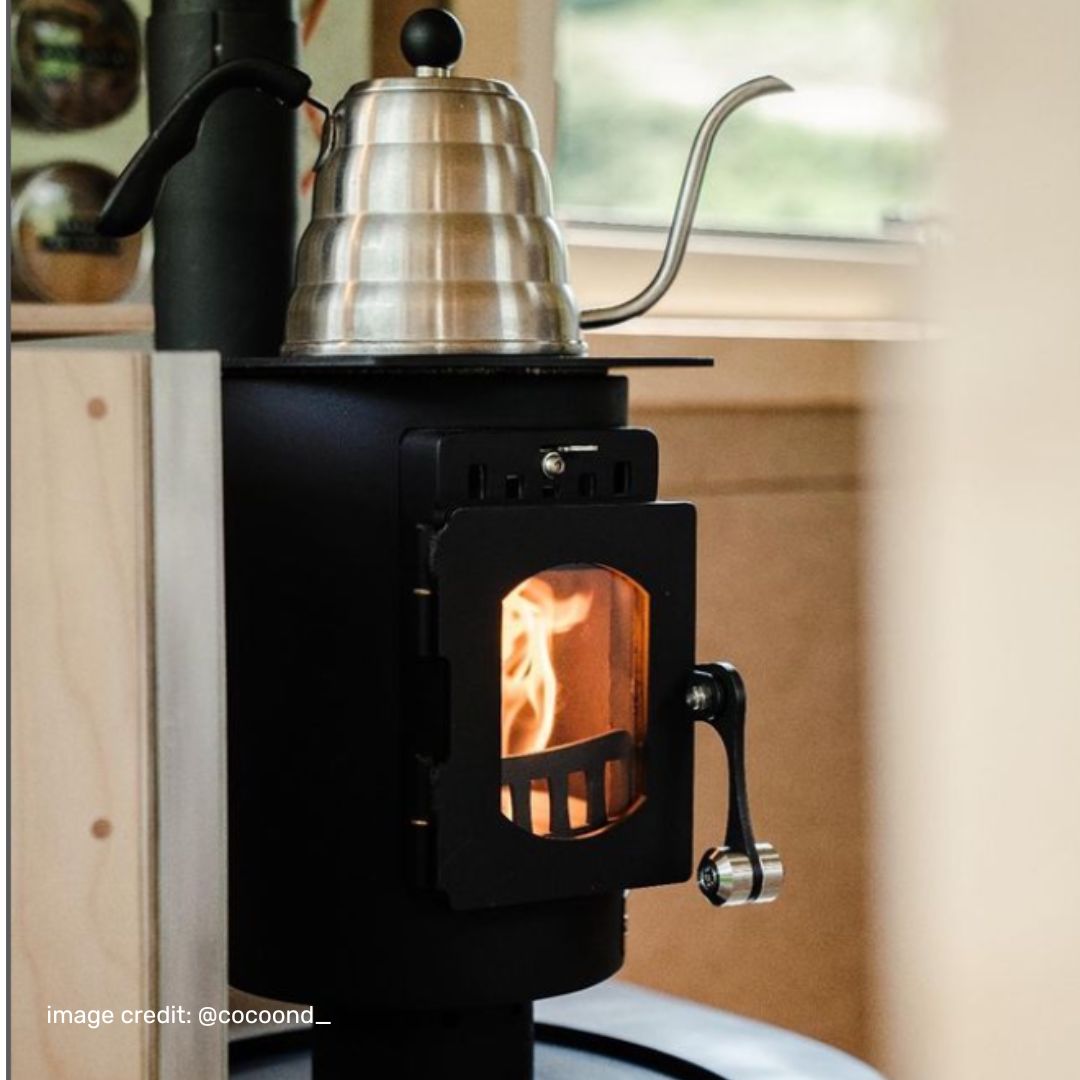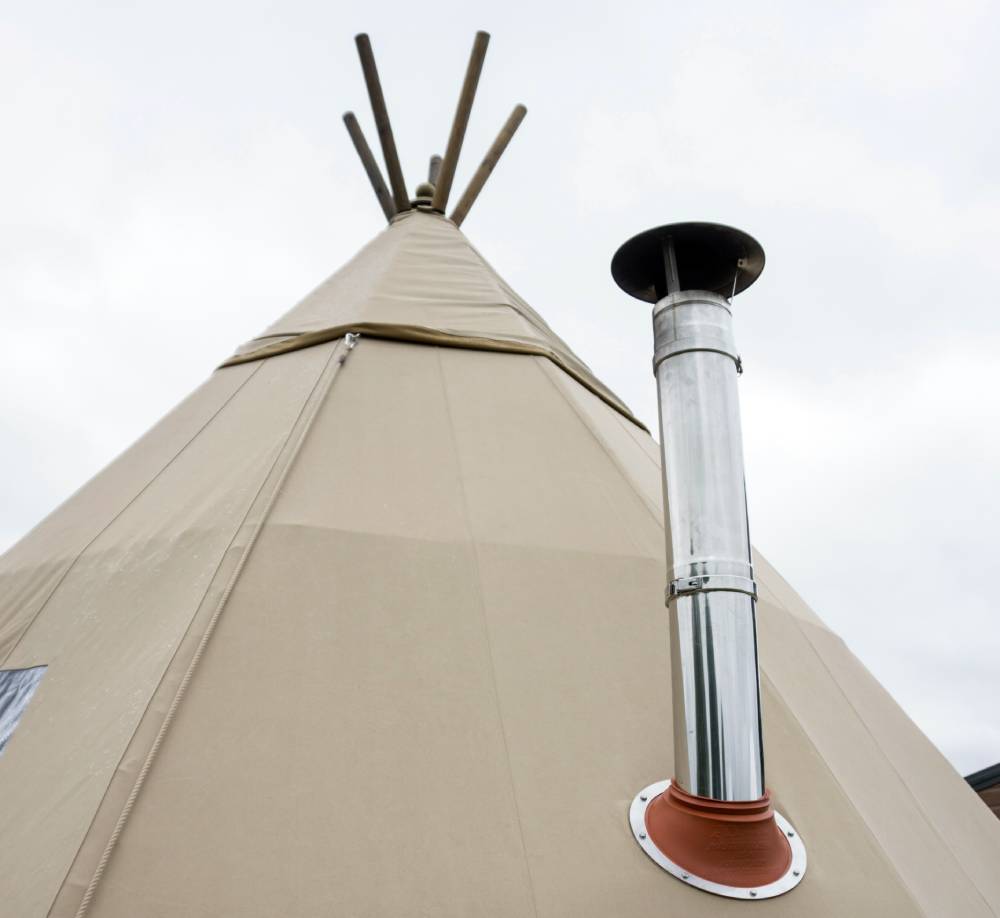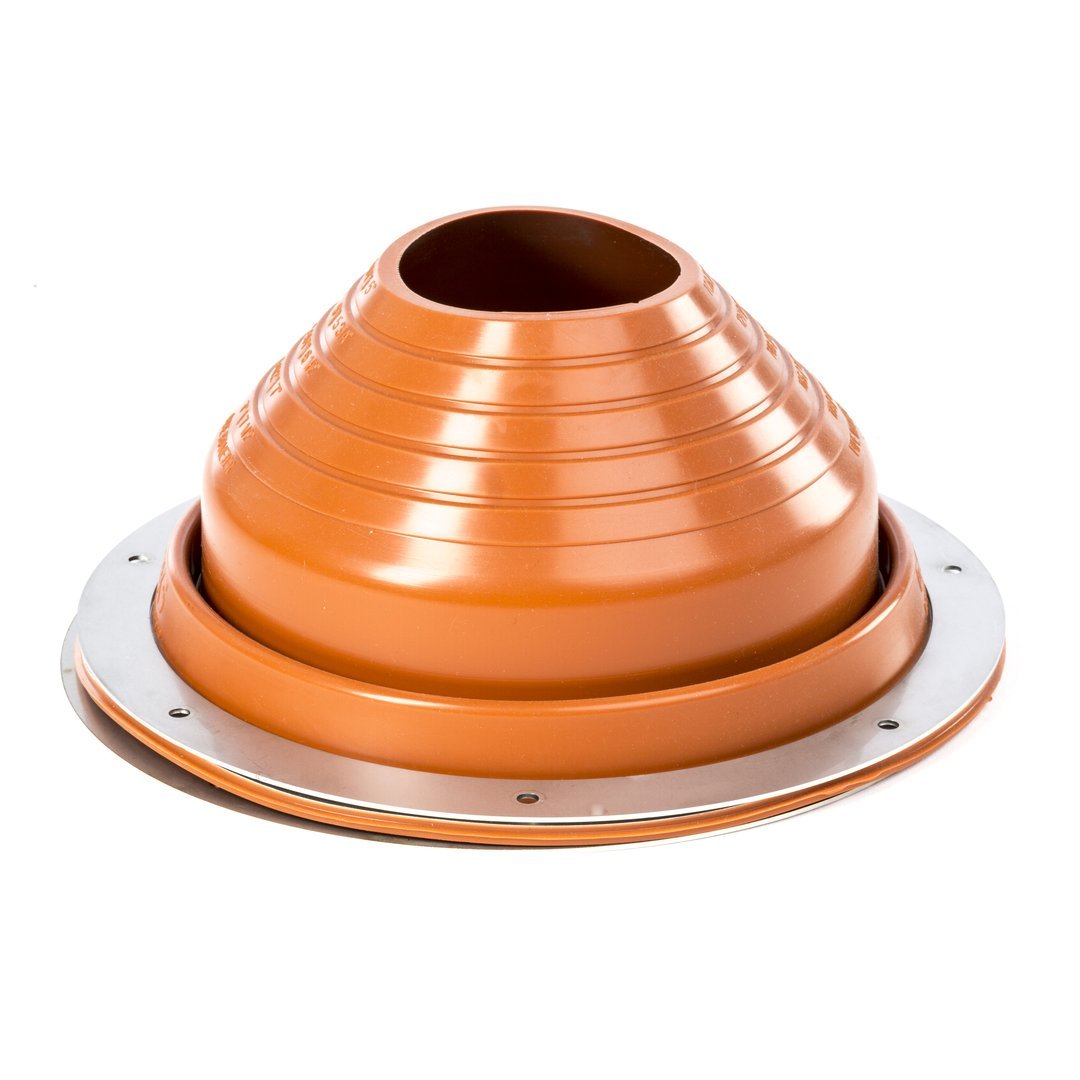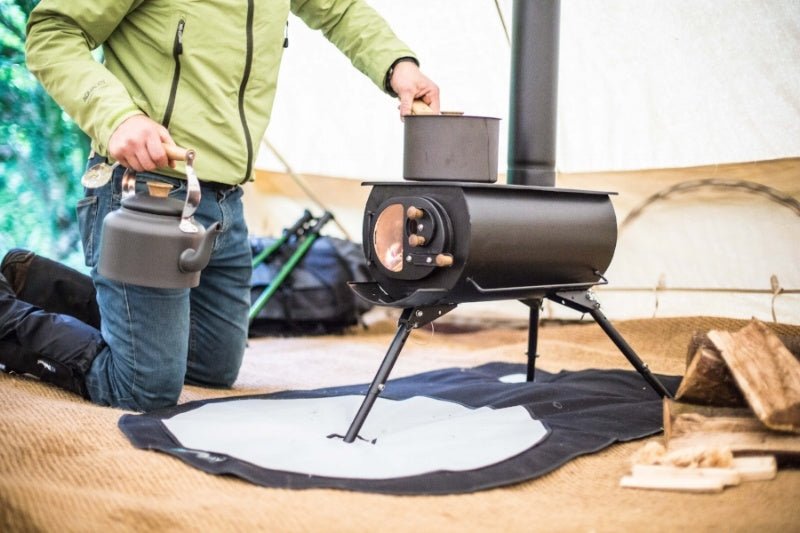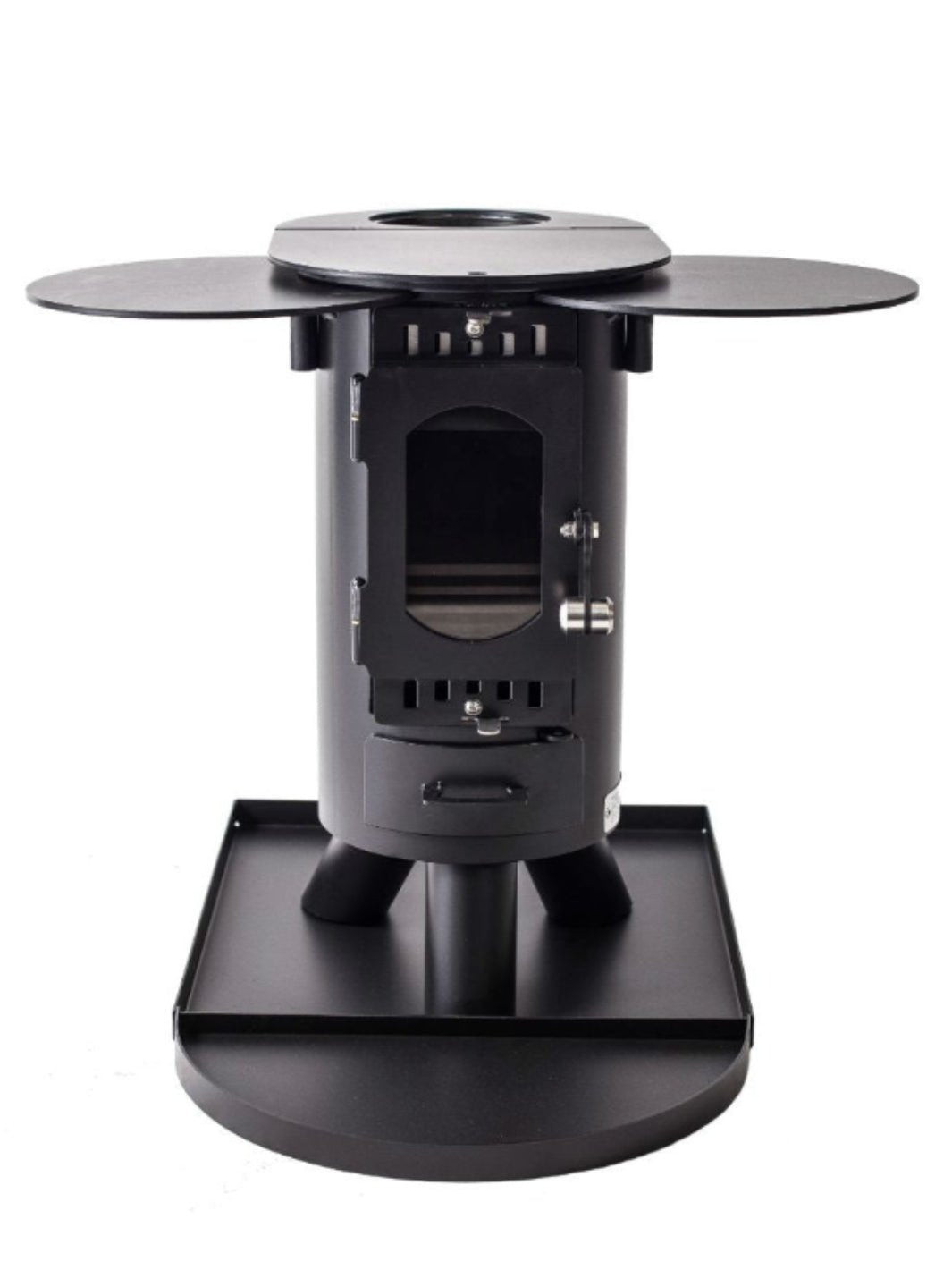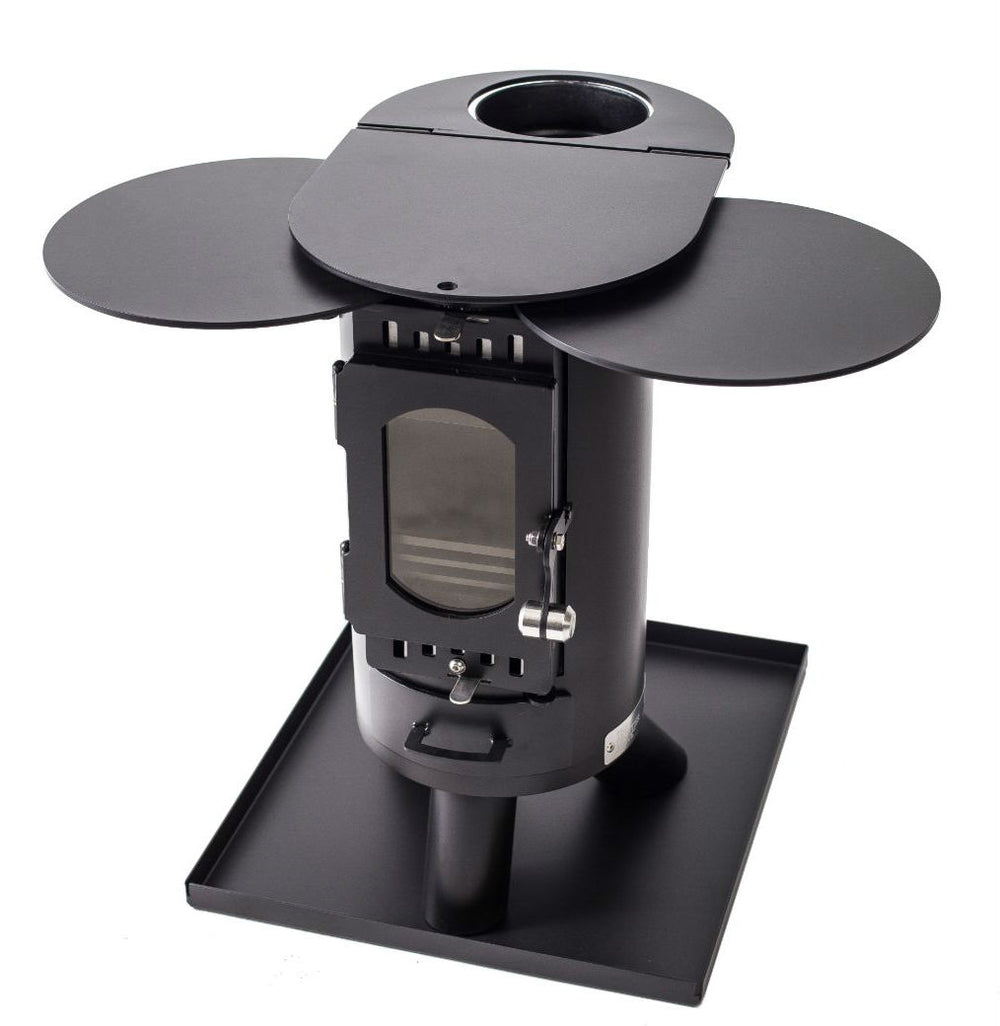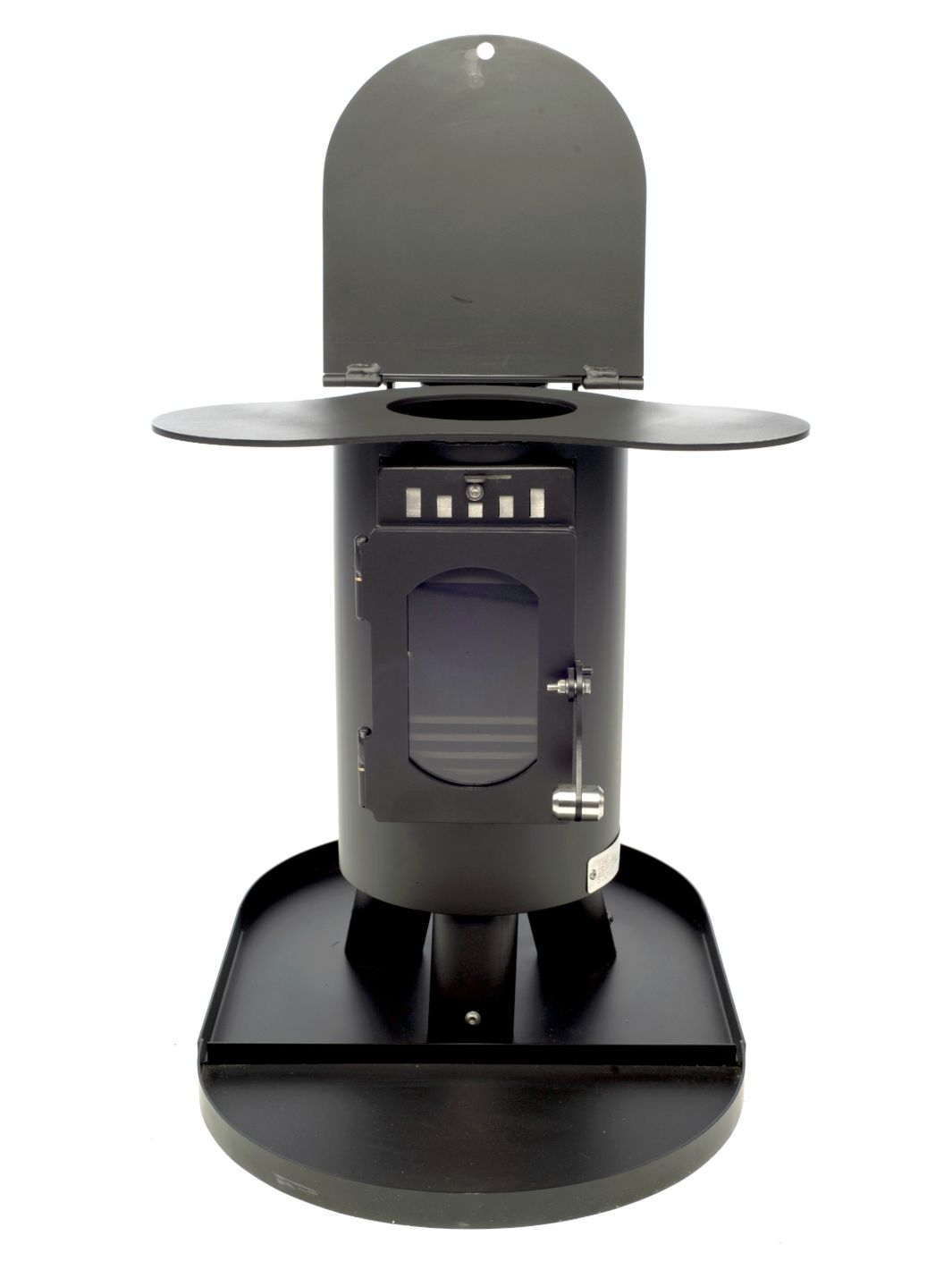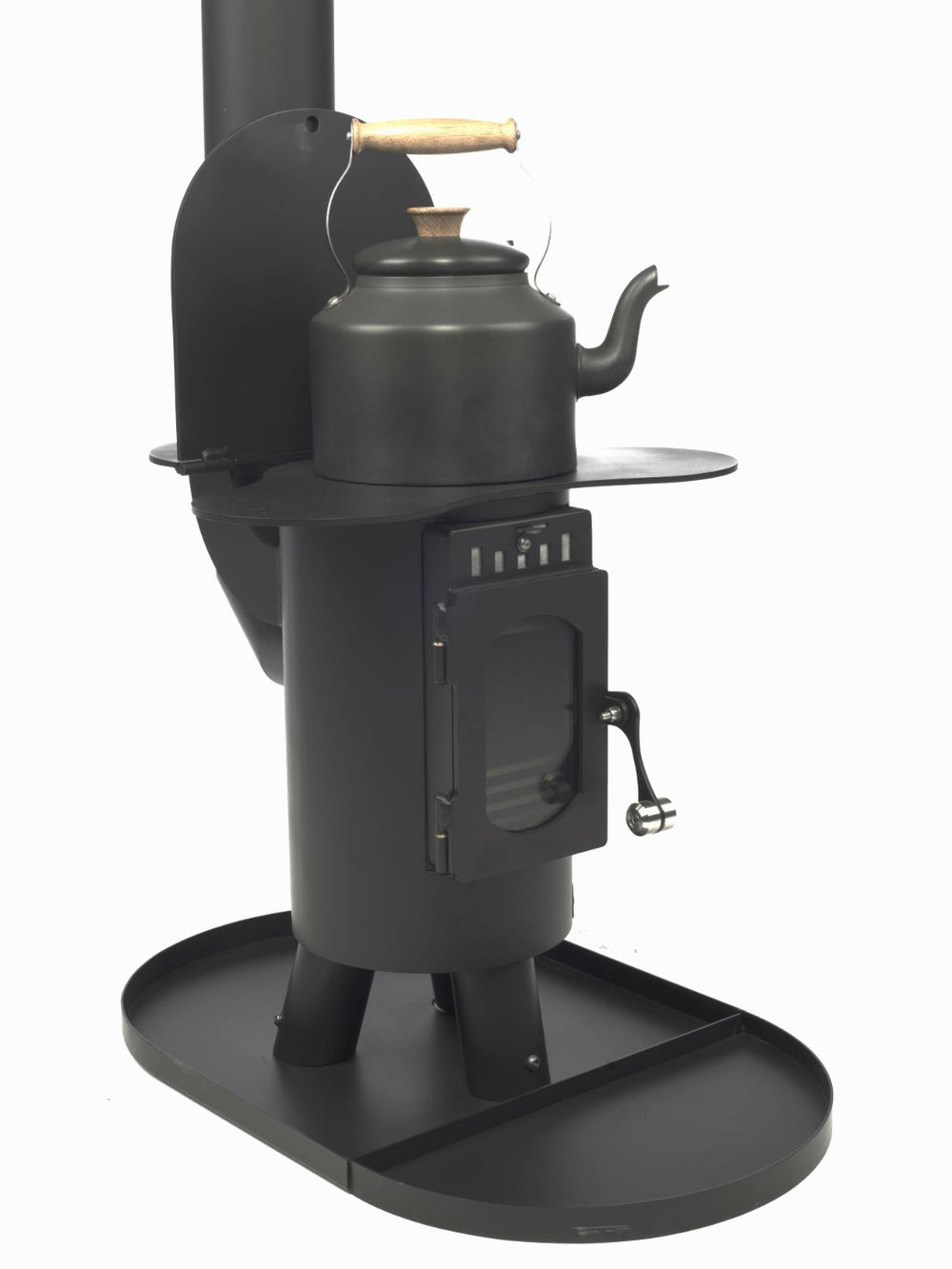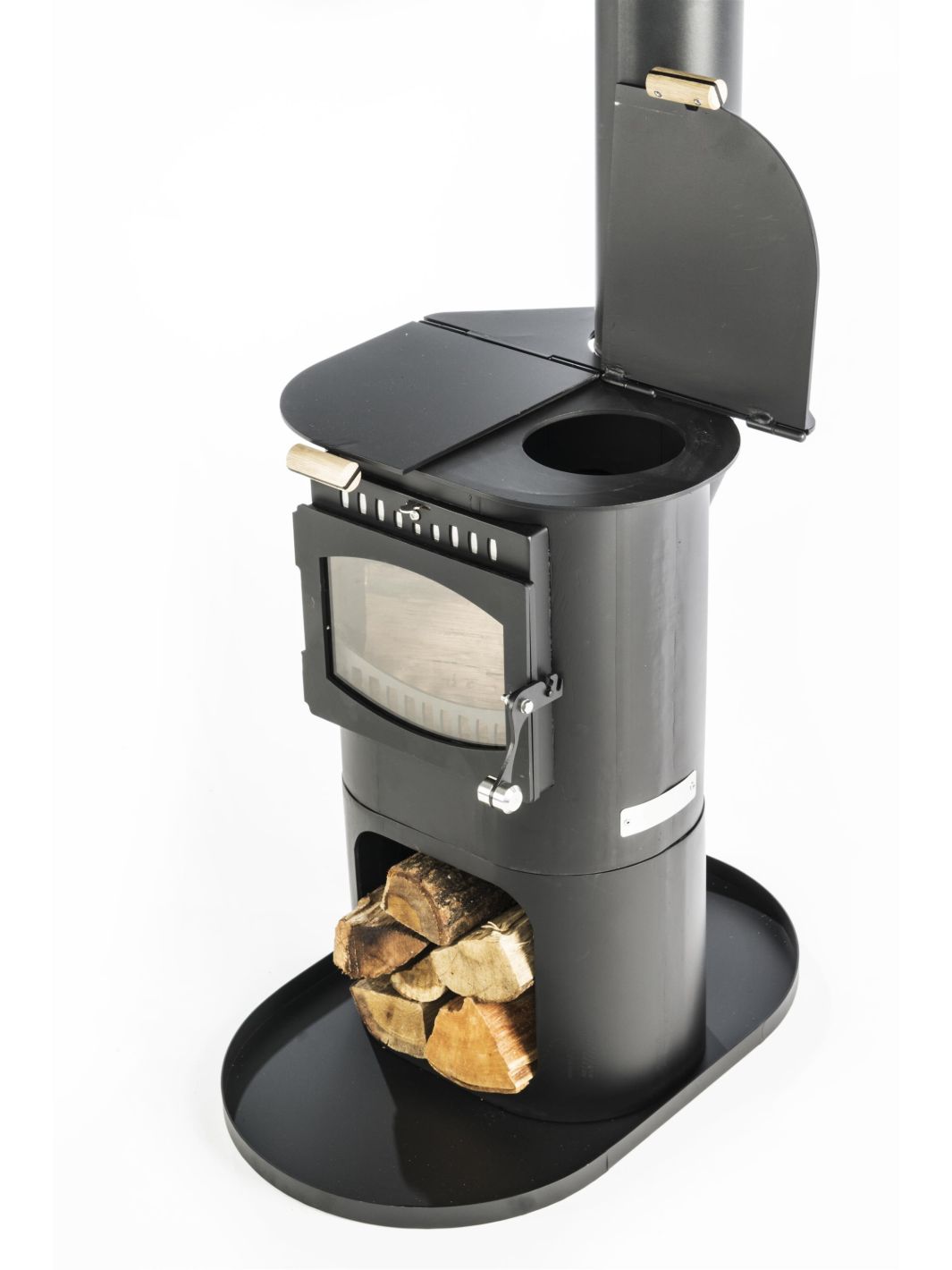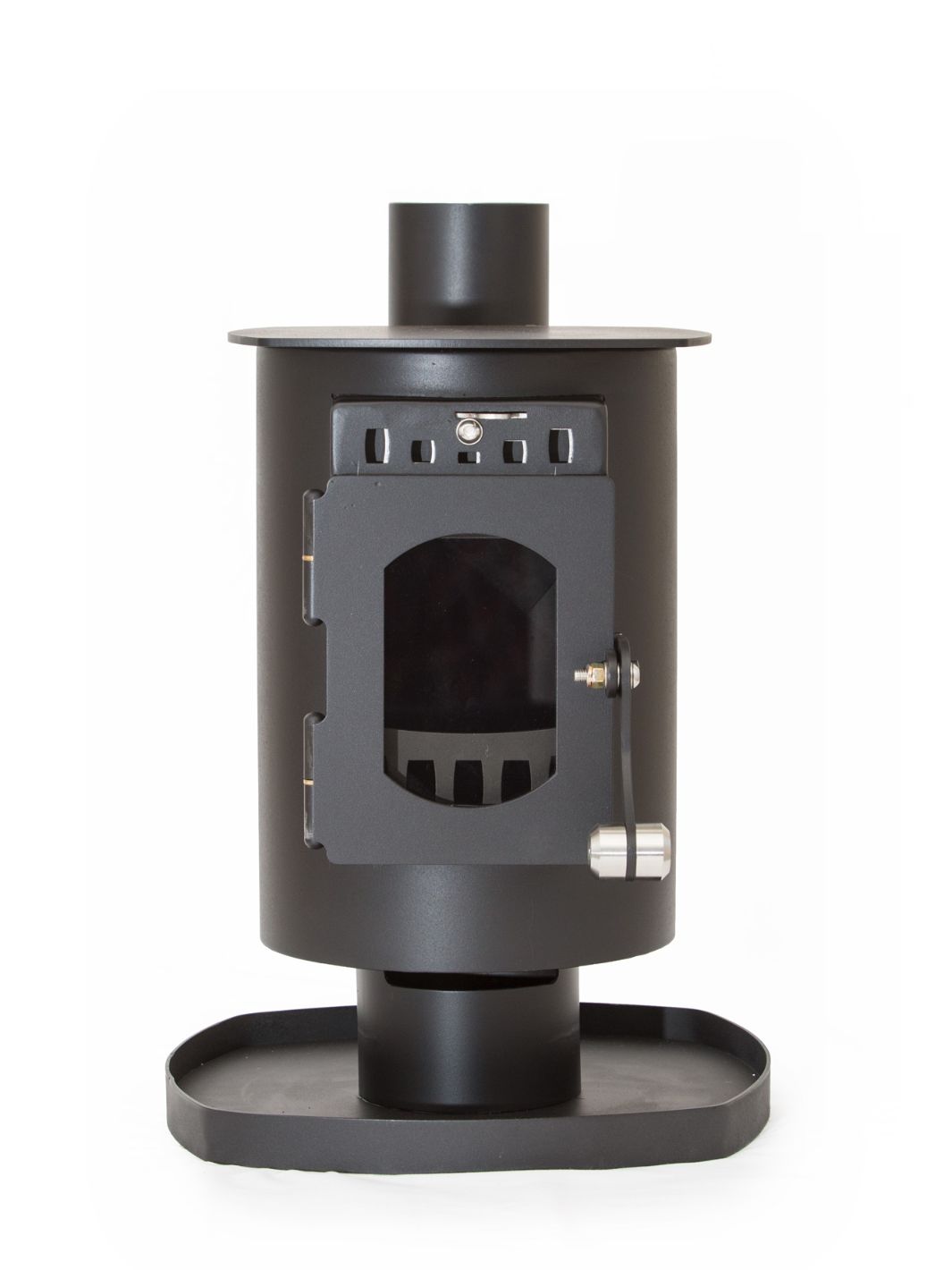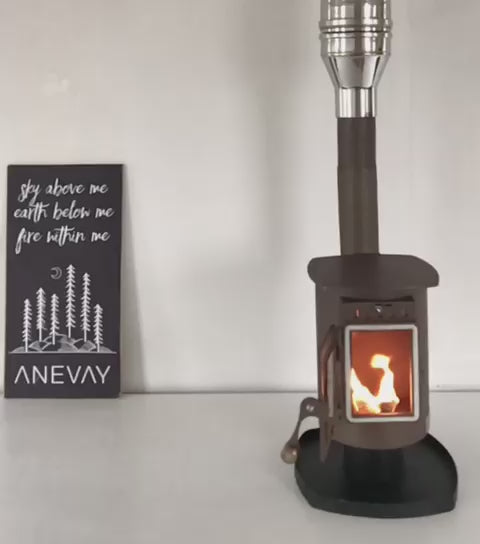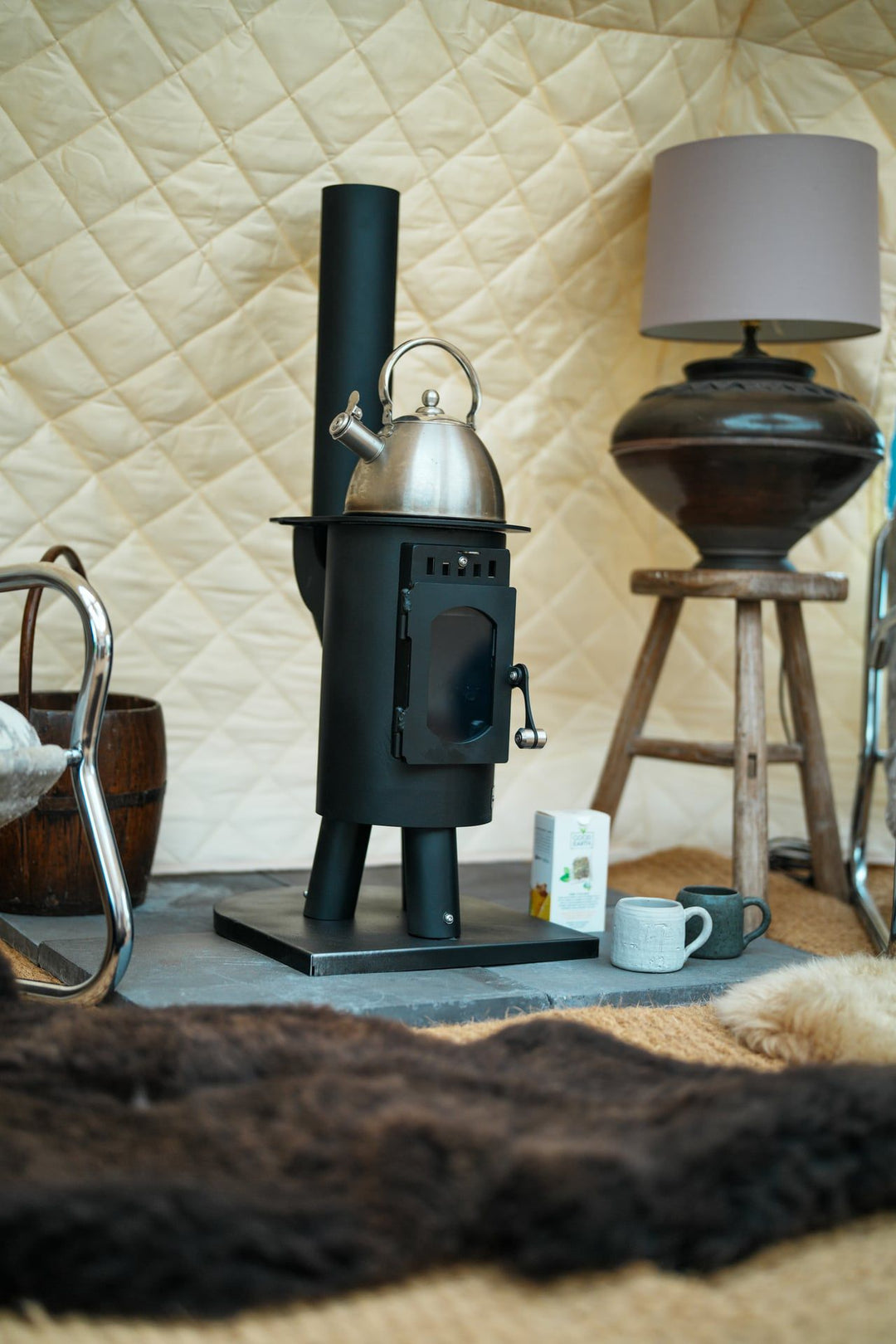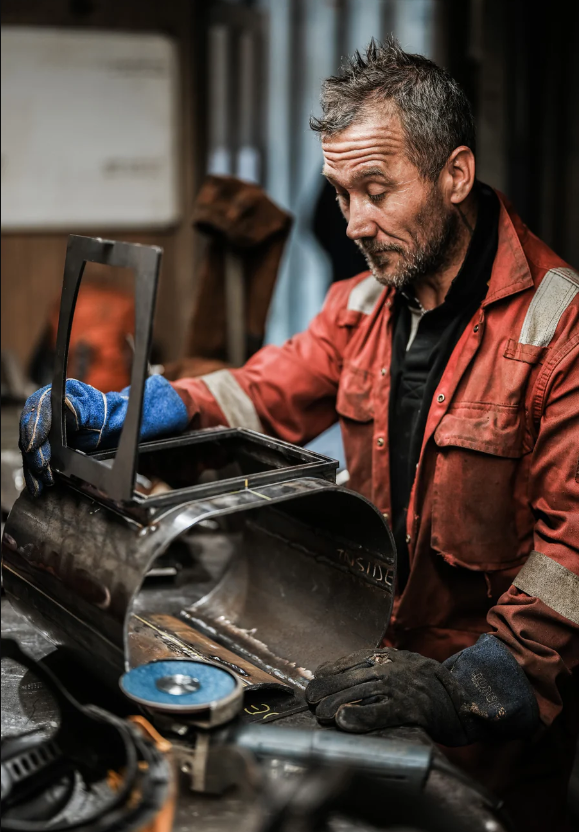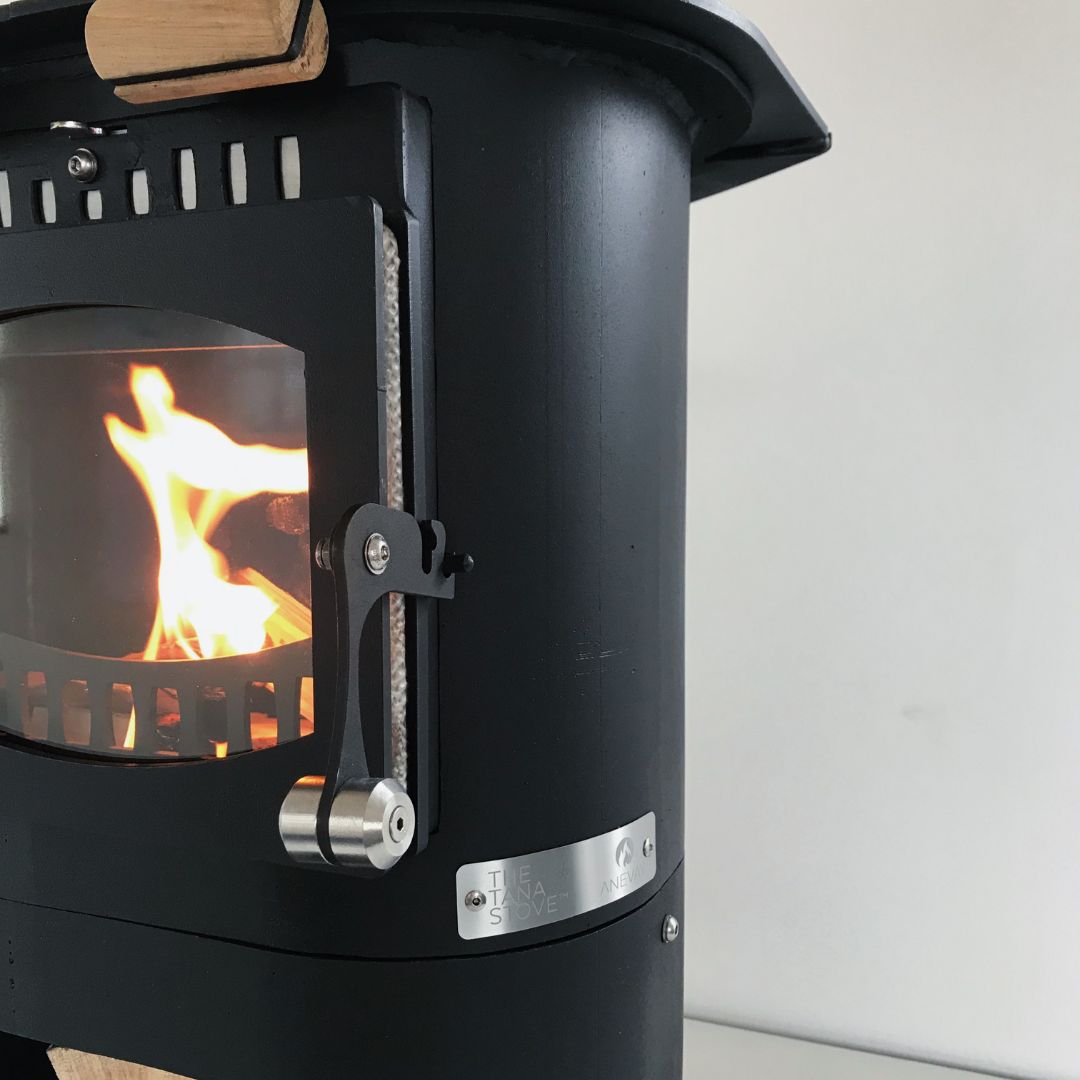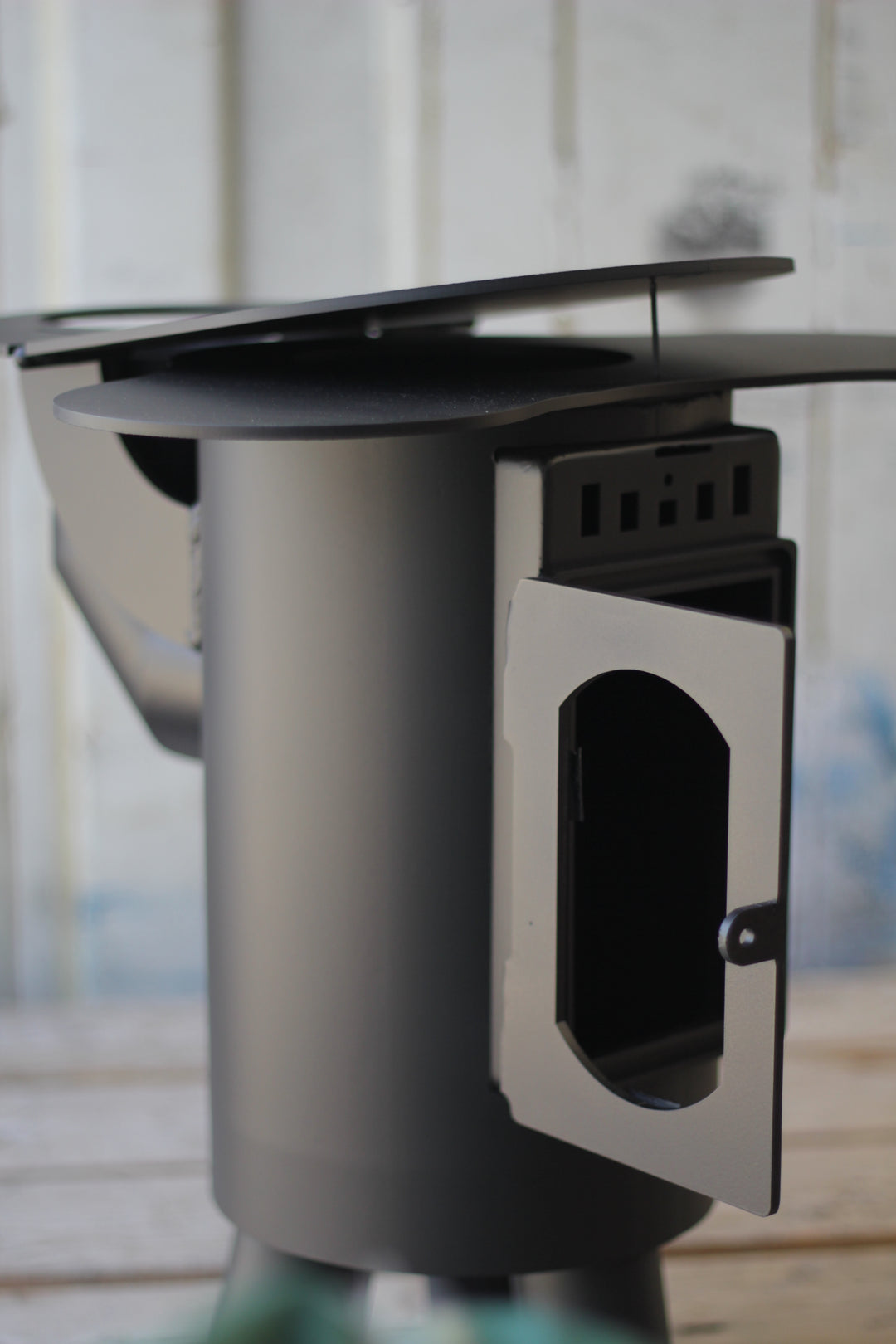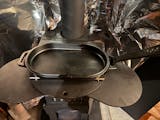One of our favourite things about meeting customers is seeing their battle-scarred and well-adventured Frontier Stoves. They're a little bit battered, maybe a little dented from sliding around in the back of a campervan, with the mods they've added - like a grill underneath to make toast or dry socks. Our stoves are designed for adventure, and we think they get better with age. But did you know that you can season your stove just like your favourite cast-iron pan, so that it actually will get better, stronger and more rust-resistant?
We've always included a small bottle in our care kits for you to fill with oil for rubbing down your stove to keep it looking good. But we've recently partnered up with Bennet and Dunne, a Shropshire-based family business who produce incredible cold-pressed organic oil that's 100% grown and processed in the UK.
Picking the best oil to cure your stove finish with can be tricky: olive and thinner nut oils won't do the job, nor will anything with trans fats. Luckily, we've hit the jackpot with an incredibly versatile oil that when used to season your stove will create a strong, glossy finish that will stand up to every adventure you can throw at it. It's so pure you can even cook with it.
Why do I need to season my stove? Our stoves are made from carbon steel, which is a great material for stoves: it doesn't warp, it diffuses heat across its surface evenly and it radiates heat well. It will rust, however, if exposed to the elements for too long (read more about why we make our stoves from carbon steel on the blog). This can be avoided with proper care: regularly rubbing down your stove with an organic oil (organic as in vegetable-based, like rapeseed or vegetable oil - rather than organic as in pesticide-free) especially before storage, ensuring your stove is kept in a dry place, and avoiding leaving it out in the rain for too long.

How to season your stove. The good news is seasoning your stove is super-simple, and only needs doing two to three times a year at most: once at the beginning of the season, and once at the end before you store your stove away. If you use your stove all year round (which we strongly encourage - get out there!), then repeat this process every four months or so, taking extra care to season before any period of prolonged storage. This can be done on a Frontier Stove, Frontier Plus, Shepherd, Traveller, Fintan or Tana - the only one of our stoves which can't be seasoned is the Horizon, which doesn't need it. It's best to do this outside, as you'll need to get the stove very hot.
- Before lighting your stove, give it a good rub down and make sure it's clean, so you've got a good clear surface to work with.
-
Spray your stove all over with our finishing oil, or tip some on to a rag. Rub stove all over with the oil then rub off again, to leave a thin layer: a thin layer is always better for seasoning, so try to avoid leaving pools of oil anywhere.
- Now for the fun part: build a fire inside the stove and slowly bring it up to a good high temperature, about 280 degrees celsius. Run the stove hot for about 20 minutes, then allow to cool slowly.
How does it work? The heatproof finish on your stove helps the surface to resist rust, but it isn't completely impermeable. When the oil is brought up to a high temperature, it's molecular structure changes: it plasticises as it cures, and creates a strong barrier against anything that might corrode it. As the oil cures, you're essentially filling in the tiny gaps in the makeup of the paint finish, creating a complete seal. This will create a glossy, smooth finish and will make your stove much more resistant to rust, stains and scratches. We conducted a bit of an experiment on one of our Frontier Stoves. We left a stove fully assembled outside in the elements: rain, wind, snow and sunshine. We periodically seasoned half the flue with rapeseed oil and left half the flue bare. The results were amazing: the part of the flue we seasoned looked as good as new, and the part we'd left bare had completely corroded. Take a look:

Look after your kit - and it'll look after you We like to think of the curing process as part of the experience of owning and caring for a stove for life. This piece of kit is designed to last, and like a favourite cast-iron pan, a trusty knife or a sturdy canvas tent, it needs looking after. Preparing your stove ready for a season of outdoor adventures, like weathering your tent and sharpening your knife, is part of the excitement in the buildup to what you've got planned. Re-seasoning after a summer of cooking on the beach, camping under the stars and evenings gathering round the fire gives you a chance to look back on everywhere you've been and the adventures you've had. Let us know how you get ready for adventures in the comments below! Our new finishing oil is now available as part of our care kit.



